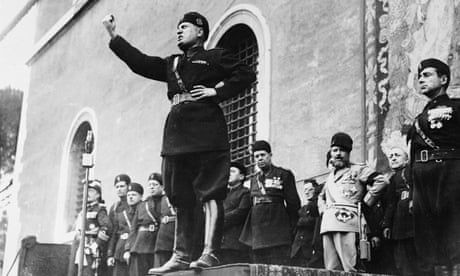
Joe Wright’s new drama gives a theatrical take on the dictator’s flaws but there is so much more history viewers need to know
On 3 January 1925, Benito Mussolini delivered the most important speech of his life to the Italian parliament. His career was about to be over. The body of the socialist deputy and his bitter foe, Giacomo Matteotti, had been discovered in a shallow grave near Rome and mounting evidence pointed to Mussolini’s responsibility for his murder. With the king, the old liberal democratic elite, the left and many of his own party pressing for his dismissal, Mussolini declared that everything – the fascist violence, the immorality, the turmoil into which Italy had sunk – was his fault, “because I, I alone, created it”. By the same token, he alone was the man “capable of dominating the crisis”. Parliament, stunned, sat silent. There was no voice of protest. The dictatorship was saved.
Based on the first volume in a trilogy of the same name by Antonio Scurati and garlanded with praise by Italian critics, the television drama Mussolini: Son of the Century covers just six years in Mussolini’s life, from his days as a brawling but highly effective journalist in Milan to his assumption of total power. Joe Wright, better known for his gentle approach and light touch in Pride and Prejudice and Atonement, has produced a series that is loud, provocative and violent. The music that accompanies it is throbbing, incessant and often intrusive, with occasional snatches of Verdi and Puccini. All is dark, deeply gloomy and sepia-coloured.
Continue reading...